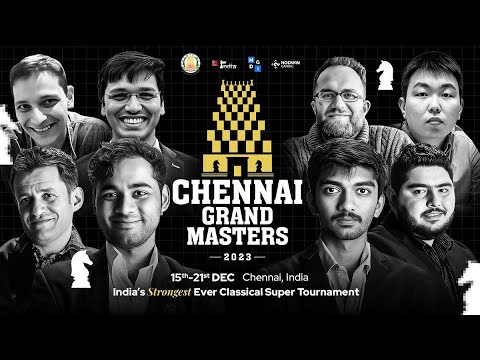In the bustling metropolis of Chennai, a quiet yet intensely strategic battle is about to unfold. The third edition of the Chennai Grand Masters chess tournament isn`t just another entry on the packed international calendar; it`s a vital preparatory ground for the elite minds of classical chess. As the chess world pivots towards the high stakes of the 2026 World Championship Cycle, this tournament offers a crucial opportunity for top players to refine their game and secure their standing.
The Crucial Pursuit of the “Classical Groove”
After a whirlwind year featuring rapid, blitz, and various online formats, the masters of the 64 squares are collectively yearning for the methodical, deep contemplation that only classical chess provides. This isn`t merely a preference; it`s a strategic necessity. The next three months are pivotal: five coveted Candidates spots, the gateway to challenging the reigning World Champion, will be decided at the FIDE Grand Swiss tournament and the FIDE World Cup. For players, Chennai offers a rare opportunity to recalibrate their internal clocks, to dust off those long-form strategies, and to perhaps rediscover the joy – or terror – of a six-hour game.
Tournament Mechanics: A Glimpse Behind the Curtain
From August 6th to 15th, with a single well-deserved rest day on the 11th, players will engage in nine rounds of intense classical combat. Each grandmaster begins with a generous 90 minutes on their clock, with a 30-second increment per move once they reach move 40 – enough time for a profound strategic masterpiece, or a spectacular blunder, depending on the day. Should points be tied at the end of the nine rounds, the tie-breaks will shift to the exhilarating, high-speed world of blitz: three-minute games with a two-second increment per move. A swift, decisive end to days of slow, simmering tension.
Who`s on the Board? The Contenders
The Masters section boasts a formidable lineup, led by India`s very own World No. 6, Arjun Erigaisi – a player many are tipping for top honors. But victory is far from guaranteed. Standing in his way are titans like Anish Giri, known for his relentless precision; the rising German star Vincent Keymer; and seasoned Indian grandmasters Vidit Gujrathi and Nihal Sarin.
Adding international flavor are Dutchman Jorden van Foreest and American talents Awonder Liang and Ray Robson, alongside promising Indian prospects V Pranav and Karthikeyan Murali. The Challengers tournament, meanwhile, is an all-Indian affair, featuring two dynamic women players, Harika Dronavalli and Vaishali Rameshbabu, alongside a strong cohort of male grandmasters. This section particularly underscores India`s burgeoning influence on the global chess stage, showcasing a depth of talent poised for future breakthroughs.
The Absent Champions: A Glimpse into Elite Schedules
One might naturally wonder, “Where are the reigning heroes?” Specifically, Gukesh Dommaraju, the current World Champion, and his compatriot R Praggnanandhaa, both hailing from this very land. Their absence, far from diminishing the tournament, actually underscores its significance: they are simply *too* busy being globally elite. Gukesh’s calendar, as befits a world champion, has taken him halfway around the globe to the Grand Chess Tour events, while Praggnanandhaa is also slated for the prestigious Sinquefield Cup. It seems that once you reach the pinnacle, the luxury of local tournaments becomes, well, a luxury itself.
Legacy and Momentum: The Chennai Effect
The Chennai Grand Masters holds a unique place in recent chess history. It was the 2023 edition of this very tournament that provided Gukesh Dommaraju with the FIDE circuit points crucial for his entry into the Candidates Tournament – a path that ultimately led to his World Championship title. One could argue Chennai is a lucky charm, or perhaps, a strategically well-placed launchpad for grand ambitions.
Beyond the immediate FIDE circuit points, the true prize here is momentum. In a year where chess formats have varied wildly, from lightning-fast blitz to rapid-fire online skirmishes, building a consistent rhythm in classical play is paramount. As the World Championship cycle enters its critical phase, Chennai isn`t just a tournament; it`s a rigorous training ground, a proving ground, and for many, the essential first step on the arduous path to the ultimate chess crown. The classical groove awaits.

